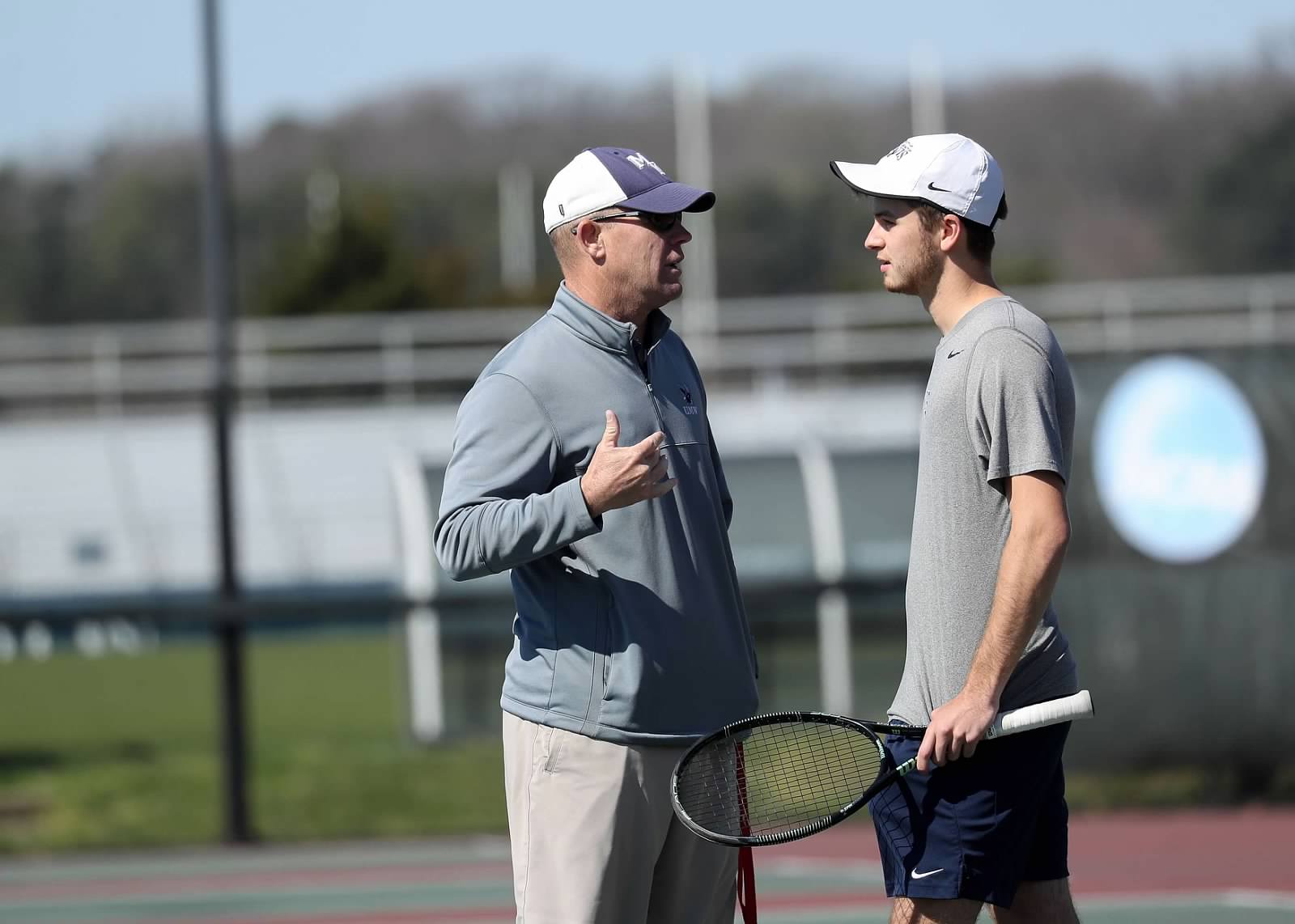UMW men’s tennis coach earns 300th career wins, spreads valuable life lessons
3 min read
Sue Spencer | Perfect Shot
BY KAITLYN WIEDMANN
Todd Helbling, the men’s tennis coach at the University of Mary Washington, has recently earned his 300th victory. He has been coaching at UMW for 18 years and says that he was drawn to Fredericksburg because it had “a beautiful campus with strong academics where I would feel good bringing quality student-athletes to have a positive learning and playing experience.”
Helbling was initially drawn to the world of sports because of his love for competition. 18 years later, he still has a love for the thrill of the game, getting better every day.
“[The sport is] great preparation for what I deal with in my personal life every day as well,” Helbling said.
He has found that involvement in athletics teaches many valuable skills such as dealing with adversity, thriving in a team environment, time management, developing character and building trust. These skills are beneficial to nearly every area of life, but are especially helpful to anyone who has had to work collaboratively. Sports can teach us to handle stress better and to learn to work out difficulties with others in a positive way.
Being involved in sports also pushes people to succeed. Helbling said that the most valuable qualities a player can have are work ethic, determination and belief.
“The greatest success comes when you work hard and want to step up in the biggest moments,” Helbling said.
Many college students who coasted through high school on their smarts discover this personally when they find out that they need to rely more on their work ethic to succeed in college. If they had not developed this skill already, they begin to struggle.
Helbling helps cultivate this skill in his athletes outside of the court by encouraging them to stay on top of their work. “Treat it just like [your] sport….do the best you can do and have no regrets,” Helbling said.
If you fail, that’s all right. Winning and losing is just as much a natural part of life as it is in sports. Helbling says that the best way to respond to a loss is by “focusing on getting better that day and trying to do better the next time we play….the same I would say for in a classroom after a poor quiz, test or paper. Get back to work, try to improve, and look forward to that next challenge.”
His favorite piece of advice he gives his athletes is to “control what you can control.” Instead of wasting time stressing out over things outside of your reach, you focus on yourself, your own attitude and how to best prepare for the challenges you face in your own life. In doing so, you’ll be ready to tackle your problems head-on, as Helbling recommends.
“Most of the time you cannot avoid them or work around them. They are a part of life,” Helbling said.
Helbling recommends students to get involved in something other than school, as most of the benefits of being involved in sports also apply to student government, community service and any other group or organization you could get involved with and be committed to.











